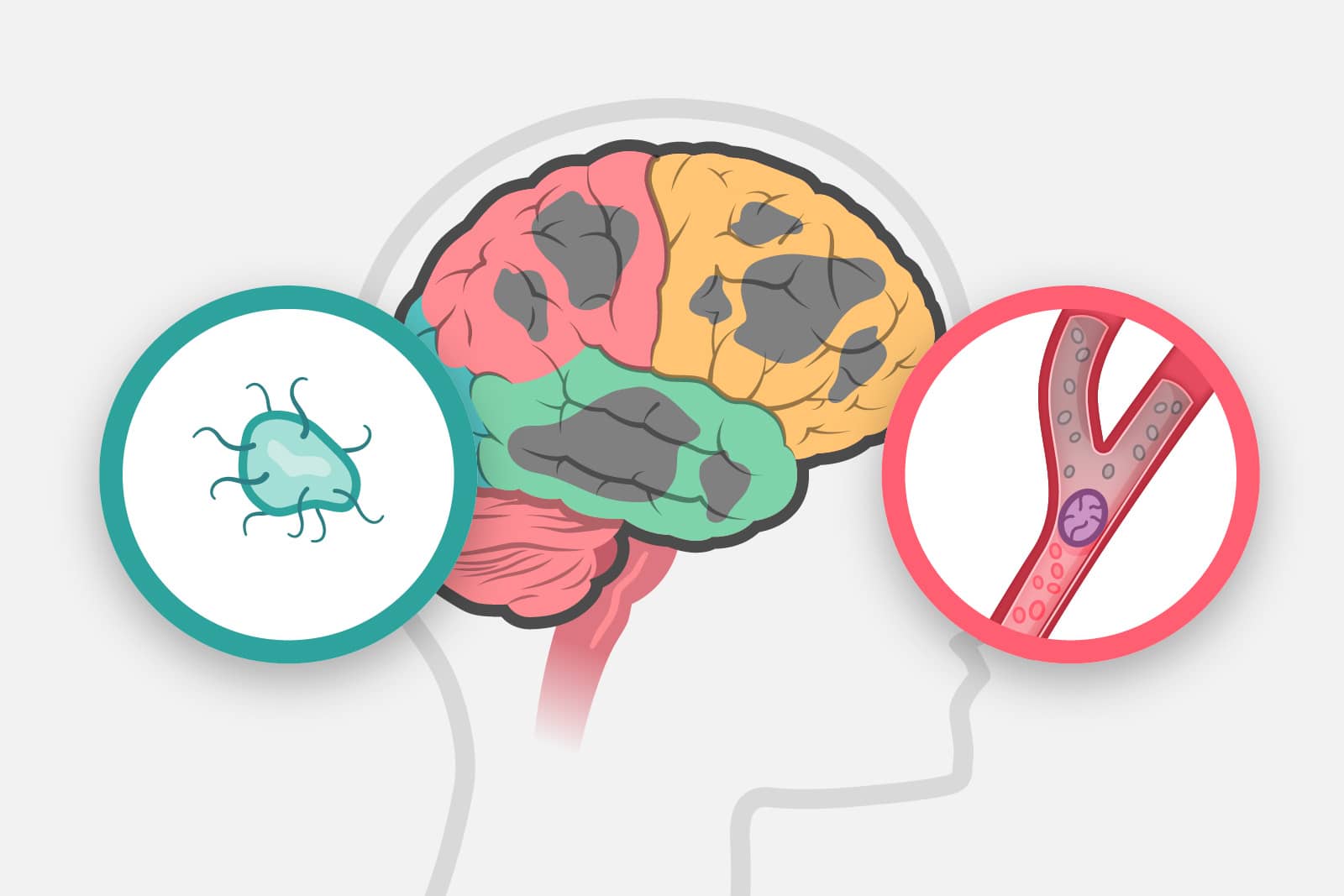The Different Types of Dementia

Lesson Outline
Dementias are most often caused by toxic proteins or blood vessel damage in the brain. There are also reversible causes such as depression. Signs and symptoms may look and sound different based on the cause and the area of the brain that is affected.
There can also be an overlap or similarities between the types of dementia. It is not uncommon for people to have mixed dementia which is a combination of two or more disorders. For example, some people may have both Alzheimer’s disease and vascular dementia.
There isn’t an easy way to make a definite diagnosis in many cases, as there isn’t one single test to confirm it. Often, signs and symptoms may change over time. This sometimes leads to a change in the most likely root cause of the dementia.
Learn the answers to the following questions:
What are the most common diseases that cause dementia?
What are some of the signs and symptoms that may be different for each type?
Lesson Resources
Here are some other resources about this topic that you may find helpful after completing this lesson.
The Different Types of Dementias
In this 4 minute video, learn more about how damage to different parts of the brain can cause certain symptoms or challenges associated with dementia.
Watch VideoLewy Body Dementia
Learn about Lewy body dementia (LBD), including symptoms, diagnosis, treatment and the similarities and differences between LBD and Alzheimer and Parkinson diseases.
Download PDFParkinson's Disease Dementia
Learn about the Parkinson's Disease dementia, its prevalence, symptoms, diagnosis, causes, risk factors, treatment and outcomes.
Download PDFAlzheimer's Disease
Access a variety of publications related to Alzheimer's disease including information about warning signs, myths, diagnosis, early-middle-late stage progression, treatment and how to live with dementia.
Visit WebsiteVascular Dementia
Learn more about Vascular Dementia and its affects, assessment, risk factors and treatment.
Download PDFFrontotemporal Dementia
Learn about frontotemporal dementia (FTD), including symptoms, diagnosis, duration, treatment and the similarities and differences between FTD and Alzheimer disease.
Download PDFSubscribe to our newsletter for new live events!